Adult’s Procedures
Safeguarding Adults policies & procedures can be found below.
Care Act 2014 Statutory Guidance
The Care Act statutory guidance ( revised March 2016) details the responsibilities of all agencies working with Adults with Care and Support Needs. The guidance can be accessed via this link https://www.gov.uk/guidance/care-and-support-statutory-guidance/safeguarding
North West Safeguarding Adults Policy
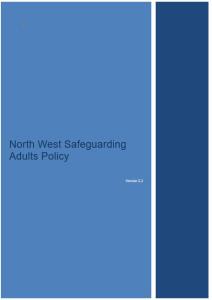
Wirral MA Safeguarding Adults Policy
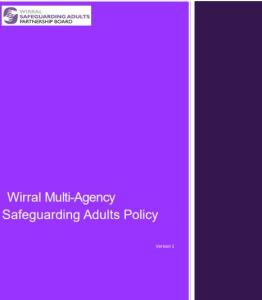 March 2023
March 2023
Wirral Adult Safeguarding Enquiries Practice Guidance
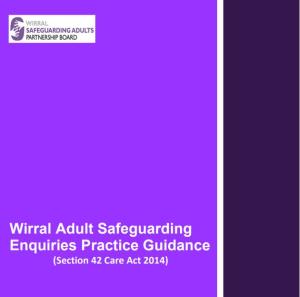 March 2023
March 2023
Wirral Multi Agency Safeguarding Adults Procedure – Final – Published September 2023
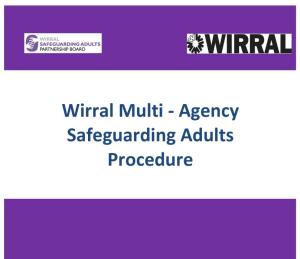 September 2023
September 2023
Wirral Multi-agency Safeguarding Adults Process Map Final September 2023
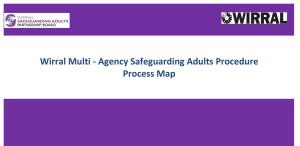 September 2023
September 2023
Information Sharing
Information sharing is vital to safeguarding and promoting the welfare of *adults, and is an intrinsic part of any front line practitioner’s job when working with adults. The decision is how much information to share, with whom and when. Information sharing can have a profound impact on individuals’ lives.
* The adult experiencing, or at risk of abuse or neglect will hereafter be referred to as the adult throughout this document.
Fears about information sharing cannot be allowed to stand in the way of the need to safeguard and promote the welfare of adults. The aim of this section is to give all staff in every partner organisation under the Wirral Safeguarding Adults Partnership Board, key points to keep in mind when making information sharing decisions. If you need more information when making your information sharing decision, you should read the rest of this document, speak with your manager and consult the Inter-Agency Safeguarding Adults Policy and Procedure. When making your information sharing decision, you should keep the following points in mind:
Seven golden rules for information-sharing
- Remember that the Data Protection Act (DPA) is not a barrier to sharing information but provides a framework to ensure that personal information about living persons is shared appropriately
- Be open and honest with the person (and/or their family where appropriate) from the outset about why, what, how and with whom information will, or could be, shared, and seek their agreement,
- unless it is unsafe or inappropriate to do so
- Seek advice if you are in any doubt, without disclosing the identity of the person where possible
- Share with consent where appropriate and, where possible, respect the wishes of those who do not consent to share confidential information. You may still share information without consent if, in your judgement, that lack of consent can be overridden in the public interest. You will need to base
- your judgement on the facts of the case
- Consider safety and wellbeing: base your information-sharing decisions on considerations of the safety and wellbeing of the person and others who may be affected by their actions
- Necessary, proportionate, relevant, accurate, timely and secure: ensure that information you share is necessary for the purpose for which you are sharing it, is shared only with those people who need to have it, is accurate and up to date, is shared in timely fashion, and is shared securely
- Keep a record of your decision and the reasons for it – whether it is to share information or not. If you decide to share, then record what you have shared, with whom and for what purpose.
Please click on this link for the full document:
Harmful Practices
Violence against any section of the community is an intolerable act and is a human rights violation. It is fundamentally wrong, impacts on the health and wellbeing of individuals and has wider effects in preventing them from fully contributing to society.
It impacts on the wider society through lack of economic development, cost to public services, Health, Social and Police and a lack of societal well-being. It is both a barrier to equality and a result of inequality.
Harmful Practices are broadly considered to incorporate honour-based abuse (HBA), forced marriage (FM) and female genital mutilation (FGM).
They are all illegal and harmful and can never be justified in the name of freedom of religion or belief.
Honour-based abuse, forced marriage and female genital mutilation are not problems, which are only happening elsewhere. These issues have been, and continue to be, brought to light within our own communities. We need to ensure that victims and community members have the confidence to speak out, and are effectively protected and supported when they do.
This strategy has been developed on behalf of the Harmful Practices Sub Group to provide a consistent approach to reducing incidents of this nature. Please click on the link below:
Pan Merseyside Harmful Practices Strategy 1
